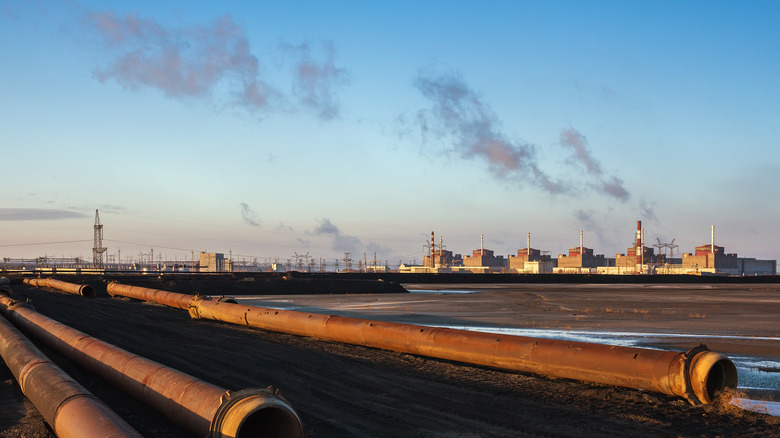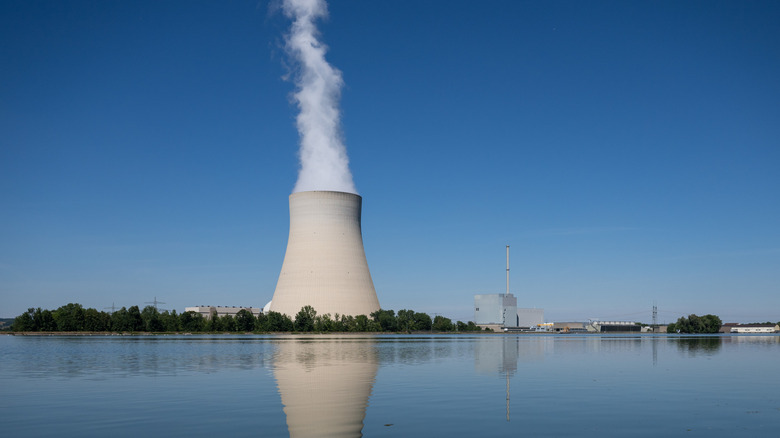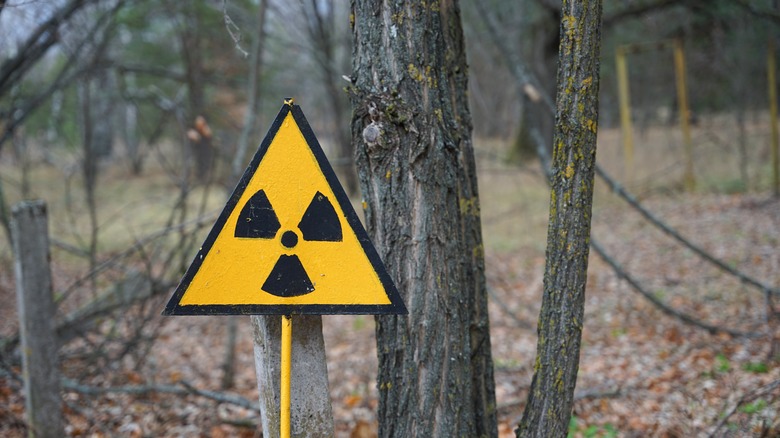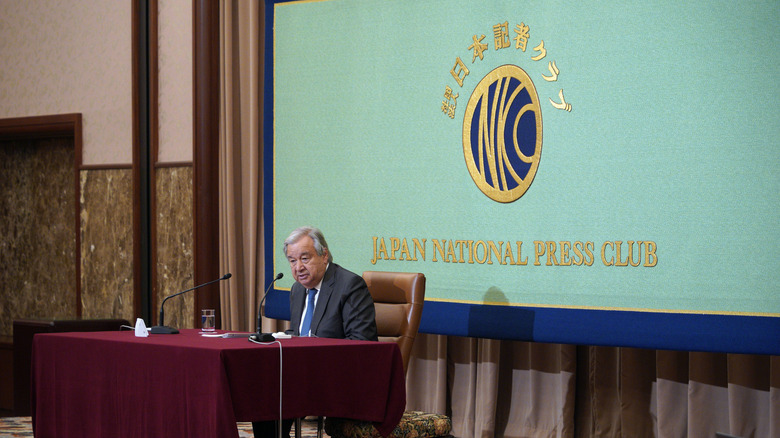Why Hydrogen Leaking From A Nuclear Power Plant Is So Deadly
In August 2022, Ukraine accused Russia of attacking its Zaporizhzhya nuclear complex in the latest developments of the Ukraine-Russia crisis, according to Reuters. The largest nuclear facility of its kind in Europe, the Zaporizhzhya plant stores six pressurized water reactors that hold enough power to produce electricity for up to 4 million homes, per The Guardian.
Ukraine officials said "a catastrophic radiation leak was 'miraculously avoided' after rockets landed on the complex's grounds," according to The New York Times. Russia countered Ukraine's accusations that the country had attacked the plant, saying it was actually Ukrainian forces that sent weapons to the facility, inciting a back-and-forth on who was to blame for the attack. Regardless, any attack on a nuclear facility threatens to leak hydrogen and other toxic radioactive pollutants into the environment, which could have deadly consequences.
Hydrogen and power plants
According to the Virginia Department of Health, power plants like Zaporizhzhya use uranium fuel "to produce steam for generating electricity." But in the process, the original uranium fuel is converted into other elements.
One of the risks of nuclear power plants taking damage or otherwise being disrupted is that some of these chemicals — including radioactive forms of hydrogen — can be explosively leaked into the atmosphere, causing health issues. For example, 75 percent of nuclear power plants in the U.S. have reportedly leaked tritium, "a radioactive form of hydrogen that can cause cancer and genetic defects," into the water supply, per Illinois PIRG.
Most plants have automatic cooling systems in place to prevent explosive elements from leaking into the atmosphere. But when natural disasters — or in the case of Ukraine, potential damages or disruptions from weapons or rockets —occur, the system threatens to overheat.
An example in Japan
In the 2011 Fukushima nuclear plant disaster, an earthquake caused one of the deadliest tsunamis throughout history, per NPR. In Fukushima, some parts of the plant's nuclear pumps automatically shut down when they detected a threat. But when the pumps stopped, water in the cores began to drop, and "the reactors started to boil," per National Geographic. As a result, steam built up powerful pressure that later caused a hydrogen explosion. That explosion spilled fuel and radiation throughout the neighboring area.
Basically, the major threat stems from very high temperatures reached when the nuclear power plant fails to cool itself. As the reactor's core heats up, hydrogen is produced, threatening to melt the tubes that hold nuclear fuel (via NPR). Dale Klein, the former chairman of the Nuclear Regulatory Commission, spoke to NPR about the 2011 Japan nuclear accident and said that if these tubes undergo a full meltdown, radioactive materials held in these tubes can also be released, which would be "extremely hazardous and probably result in more evacuation."
'A Fukushima or Chernobyl'
In an interview with AP News, Director-General of the International Atomic Energy Agency Rafael Grossi likened the threat of the 2022 situation in Ukraine to the risks of the infamous 1986 Chernobyl disaster, which happened just 65 miles north of Ukraine's capital city, Kyiv. The head of Ukraine's state nuclear power company Energoatom Petro Kotin told Reuters the situation could spiral "out of control" like another "Fukushima or Chernobyl" crisis, which were very rare accidents, according to the World Nuclear Association.
But they had disastrous consequences. As of last year, just one death had been attributed to the radiation leak in Fukushima, but the full effects of the spillage are still being determined, according to National Geographic. As Russia and Ukraine traded blame for who attacked the facility in Zaporizhzhya, experts around the world expressed concern that similar disturbances among the reactors there could lead to the world's next hydrogen explosion. Regardless of whether it's Russia or Ukraine that's initiating the attacks, the United Nations Secretary-General António Guterres said in a news conference hosted to commemorate the world's first atomic bombing in Hiroshima that "any attack to a nuclear plant" was "a suicidal thing," according to The Guardian.



